Filter by
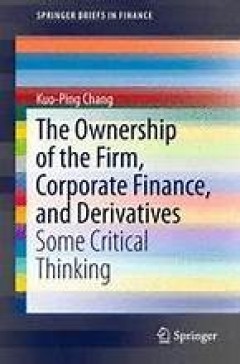
The Ownership of the Firm, Corporate Finance, and Derivatives
This book clarifies several ambiguous arguments and claims in finance and the theory of the firm. It also serves as a bridge between derivatives, corporate finance and the theory of the firm. In addition to mathematical derivations and theories, the book also uses anecdotes and numerical examples to explain some unconventional concepts. The main arguments of the book are: (1) the ownership of t…
- Edition
- 1
- ISBN/ISSN
- 978-981-287-353-8
- Collation
- XII, 76, 11 b/w illustrations
- Series Title
- SpringerBriefs in Finance
- Call Number
- XII, 76, 11 b/w illust

Inequality, Polarization and Conflict An Analytical Study
This monograph initially offers a systematic treatment of the theory and methodology of alternative notions of income polarization and related issues. It then goes on to analyze social polarization, ordinal polarization, and the relations between inequality polarization, fractionalization and likelihood of conflicts. Axiomatic approaches to the measurement of polarization from different perspec…
- Edition
- -
- ISBN/ISSN
- 978-981-10-0007-2
- Collation
- XI, 137
- Series Title
- -
- Call Number
- 330 MIT i
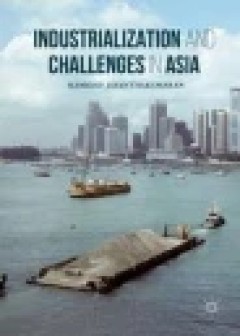
Industrialization and Challenges in Asia
This book provides a much-needed review of Asia’s economic growth and its challenges in the context of post-war industrialization. In the early 1990s, the World Bank (1993) recognized eight high-performing Asian economies (HPAEs) (Japan, the Asian tigers, Indonesia, Malaysia and Thailand) and named them the ‘Asian economic miracle’. In the recent past, the term ‘emerging economies’ ha…
- Edition
- -
- ISBN/ISSN
- 978-981-10-0823-8
- Collation
- XXIV, 265
- Series Title
- -
- Call Number
- 330 JAY i

Industrial and Labor Economics Issues in Developing and Transition Countries
This book is an attempt to capture and analyze several idiosyncratic features of industry and labor in the developing world. Available books and graduate-level texts in labor economics largely discuss industrial and labor market situations prevalent in developed countries, where well-defined institutional arrangements and regulations create a very different scope of analysis. The patterns of ch…
- Edition
- -
- ISBN/ISSN
- 978-3-319-12840-5
- Collation
- IX, 314
- Series Title
- -
- Call Number
- 330 KAR i
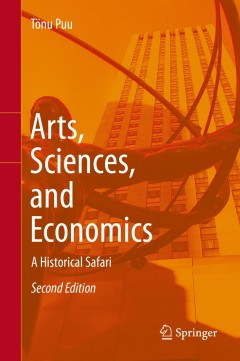
Arts, Sciences, and Economics: A Historical Safari
This book deals with the economic aspects of changing attitudes in arts and sciences. The effects of the public good character of culture, along with the very long production period and lifetime for its products, are emphasized, since both contribute to the failure of normal market solutions. Embodiment of ideas and the consequences of modern reproduction technology for protection of property r…
- Edition
- Ed. 1
- ISBN/ISSN
- 978-3-662-44130-5
- Collation
- XXIV, 189
- Series Title
- -
- Call Number
- 330 PUU a
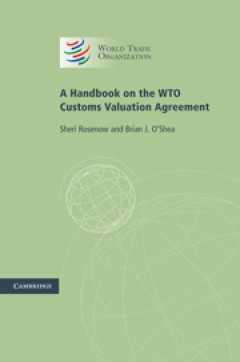
A Handbook on the WTO Customs Valuation Agreement
This guide to the WTO Customs Valuation Agreement is based on the authors' experiences of teaching its finer points to customs officials and policy-makers around the world. Covering the methods of valuation and the provisions on enforcement, implementation and dispute settlement, the authors give practical examples, explain interpretative decisions of national and international customs bodies, …
- Edition
- -
- ISBN/ISSN
- 9780511733161
- Collation
- -
- Series Title
- -
- Call Number
- -
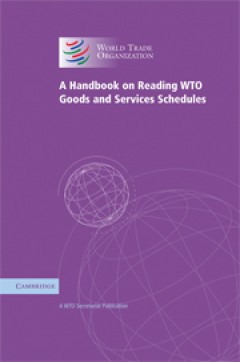
A Handbook on Reading WTO Goods and Services Schedules
This is a detailed guide on how to read WTO Schedules of Commitments for Goods and Services. The Schedules are part of the Legal Texts of the WTO Uruguay Round Agreements. They comprise about 27,000 pages of specific commitments by 153 members of the WTO on market access conditions for their markets. Understanding how to interpret the Schedules is essential for anyone wishing to glean informati…
- Edition
- -
- ISBN/ISSN
- 9780511992780
- Collation
- -
- Series Title
- -
- Call Number
- -
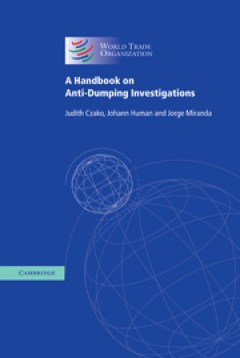
A Handbook on Anti-Dumping Investigations
The subject of anti-dumping procedures has received growing attention in international trade policy and has become a source of tension between countries. This handbook covers the major areas arising in anti-dumping investigations as embodied in the relevant WTO provisions, providing an exposition of well-sourced information, explanations and guidance for grasping the intricacies of anti-dumping…
- Edition
- -
- ISBN/ISSN
- 9781139162036
- Collation
- -
- Series Title
- -
- Call Number
- -
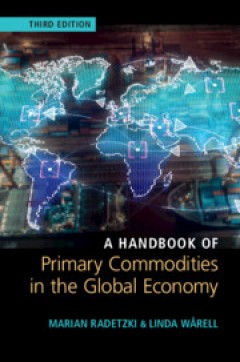
A Handbook of Primary Commodities in the Global Economy
The dramatic price falls of 2014–2015 marked the end of the most powerful and enduring commodity boom since the Second World War. Now in its third edition, this book acts as a guide to the ins and outs of the primary commodity universe. Updates to this edition reflect on the consequences of both China's economic slowdown as its industrialization enters a new, less commodity demanding phase, a…
- Edition
- -
- ISBN/ISSN
- 9781108886529
- Collation
- -
- Series Title
- -
- Call Number
- -
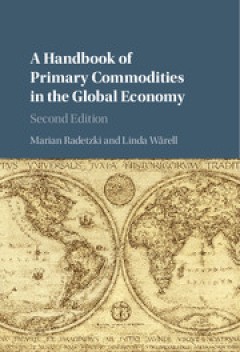
A Handbook of Primary Commodities in the Global Economy
The 2010s have been a dramatic period for most primary commodity markets. Producers suffered heavily as prices fell in response to new supply facilities going into production, juxtaposed against disappointing demand evolution from China in particular, marking the end of the most powerful and enduring commodity boom since the Second World War. This book is a guide to the primary commodity univer…
- Edition
- -
- ISBN/ISSN
- 9781316416945
- Collation
- -
- Series Title
- -
- Call Number
- -
 Computer Science, Information & General Works
Computer Science, Information & General Works  Philosophy & Psychology
Philosophy & Psychology  Religion
Religion  Social Sciences
Social Sciences  Language
Language  Pure Science
Pure Science  Applied Sciences
Applied Sciences  Art & Recreation
Art & Recreation  Literature
Literature  History & Geography
History & Geography